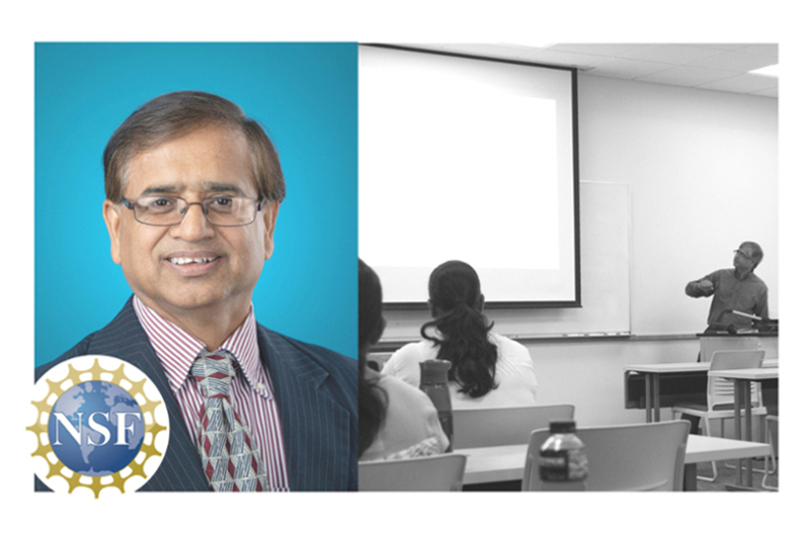TAMU-CC Professor Awarded Two Prestigious NSF Grants

CORPUS CHRISTI, Texas –Texas A&M University-Corpus Christi's Professor of Computer Science, Dr. Dulal Kar, has secured not one but two grants courtesy of the National Science Foundation totaling more than $2.1 million.
According to Kar, the grants will support funding for technological advancements and a new SUCCESS II scholarship program for low-income and underrepresented students.
“I am beyond excited; this funding creates opportunities for research and education in more ways than one,” Kar said.
A continuation of the first SUCCESS program – which was initially awarded $600,000 from the NSF over a seven-year period; SUCCESS II is a six-year $1 million project with the goal of aiding underserved and underrepresented first-year or transfer students majoring in computer science and engineering. The program aims to retain at least 90% of those students and encourages the pursuance of a graduate or doctoral degree.
“The benefits of this scholarship reach beyond that of the student alone,” Kar said. "An opportunity for quality education touches the lives of their families, friends, and ultimately the communities they call home.”
Twenty-four students from regional high schools and community colleges will be selected. These students will each receive four years of collegiate funding, as well as be included in a learning community cohort experience consisting of alumni mentors, faculty, and advisors dedicated to ensuring their academic success. The program will also examine the impacts of participating in learning communities and their potential to increase retention among first-year Islanders.
Kar’s second NSF grant will spearhead the implementation of a new high-performance computing cluster for the Centers of Research Excellence in Science and Technology (CREST) at TAMU-CC. The hardware will aid CREST researchers and provide support for advanced research faculty and students alike.
“To do computations with big theoretical data or deep learning models requires a lot of computing power,” Kar said. “They can do their research and get results, but when it comes to showing students, this new technology will actively engage them and allow them to complete the work right here on campus, eliminating the need for outside lab resources.”
Kar states that both grants will increase the Island University’s ability to offer quality education with state-of-the-art technology.
"Our university is home to the brightest minds and the boldest thinkers and is centered around student success and research,” Kar said. “These NSF grants support these ideals in a way that changes lives. I am proud to have a hand in that and for this to be my Islander Impact.”
Editor’s note:
The co-Principal Investigators for SUCCESS II are Drs. David Bridges, Dugan Um, and Mamta Yadav.
The co-Principal Investigators for the high-performance computing cluster are Drs. Philippe Tissot, James Gibeaut, Christopher Bird, and Chuntao Liu.

